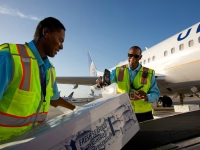The digital verification system at the “heart of national security” and private and public sectors in South Africa has received a significant revamp, the South African government Department of Home Affairs announced. Investing in a “comprehensive” system upgrade refines faster ID verification processes and showcases what is possible for businesses in the financial sector with verifying identities using biometric solutions like fingerprints and facial recognition against the National Population Register.
A range of governmental departments have onboarded the system protecting their public services, but in recent years its performance has been plagued by streamlining issues and inefficiencies causing up to 50% false positive matches. It is clear the current level upgrade needs to be reviewed by the government to mitigate 24 hour delays in the system responding. When responses are received, they are often littered with errors and require slower manual verification instead.
Testing yesterday revealed the failure rate had been mitigated to below 1% enabling faster and accurate detection. The Department of Home Affairs said they were ready to roll out the “upgraded verification service to all our valued clients across the public and private sectors” to markedly enhance service delivery. There are many reasons why a client may need to verify their identity to open a bank account, access benefits or obtain a grant, for instance.
The upgrade, completed for the first time since the system launched, is also “immensely important” to growing the private economy and ensuring banks, financial services, and insurance companies are empowered to offer the best-in-class verification.
The home affairs department is the custodian of identity, civil status and migration of citizens and its digital verification system provides a link between a service provider and the DHA’s national population register.
The Ministers of Home Affairs and Finance outlined new maintenance fees for private companies using the vastly more capable verification service, which will increase for the first time in over a decade from 1 April 2025. Government users will remain exempt from contributing to the service costs as the balance to invest in the National Population Register will not negatively affect public finances.
Minister Schreiber concluded: “This investment in our population register is not only overdue, but also important for delivering on the vision for digital ID, as outlined by President Cyril Ramaphosa during the State of the Nation Address, as a secure and efficient population register forms the cornerstone of digital ID. The launch of the reformed verification system is further proof of the progress that Home Affairs is making on our journey of digital transformation to deliver dignity for all.”



















